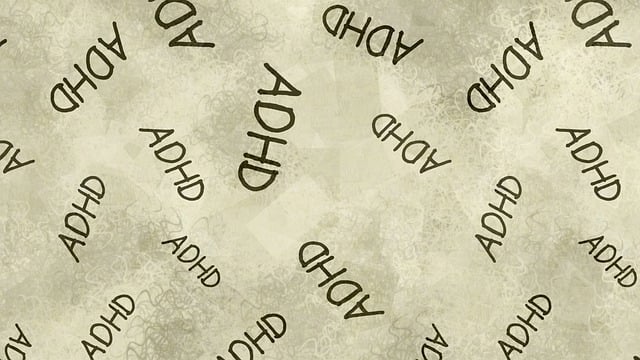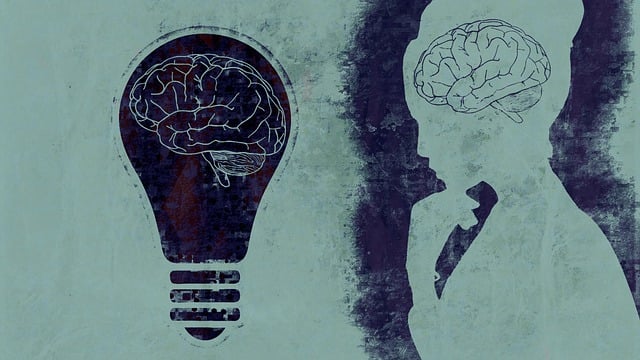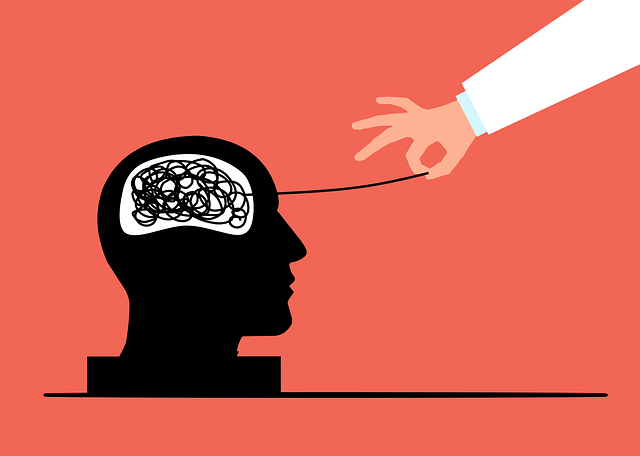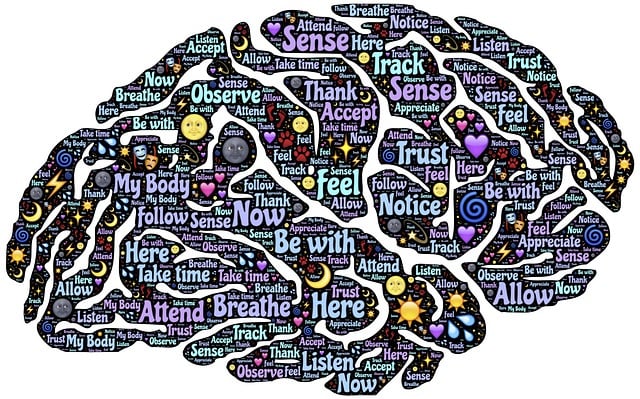Mental healthcare professionals must embrace cultural sensitivity as a core component of effective therapy for psychological testing, recognizing that mental health issues are not culture-neutral. This involves integrating cultural awareness into practice through policies like Mental Health Policy Analysis and Advocacy, and implementing strategies such as Stress Management Workshops and tailored Mental Wellness Coaching Programs. Culturally responsive care improves accessibility, builds trust, and enhances therapeutic outcomes, addressing potential misdiagnosis due to Western-centric test norms. Key practices include mindfulness, empathy, culturally adapted assessment tools, community-based interventions, and understanding intergenerational trauma. Ongoing learning, self-care, and diverse training programs are vital for maintaining cultural competence among professionals, benefiting both providers and clients. Building strong patient-therapist relationships through cultural awareness is key to comprehensive care that resonates with individual cultural identities, fostering trust and encouraging the sharing of personal experiences.
In today’s diverse world, cultural sensitivity in mental healthcare is paramount. Understanding and respecting cultural diversity shapes effective therapy outcomes. This article explores key aspects of culturally competent practice, focusing on improving patient care through awareness and adaptation. We delve into topics such as the impact of cultural sensitivity, adapting psychological testing to respect backgrounds, strategies for competent practice, and enhancing patient-therapist relationships. By embracing these principles, mental healthcare professionals can provide therapy tailored to meet diverse needs, ensuring better outcomes for all.
- Understanding Cultural Diversity in Mental Healthcare
- The Impact of Cultural Sensitivity on Therapy Outcomes
- Adapting Psychological Testing to Respect Cultural Backgrounds
- Strategies for Culturally Competent Practice
- Enhancing Patient-Therapist Relationships through Cultural Awareness
Understanding Cultural Diversity in Mental Healthcare

In the realm of mental healthcare, recognizing and appreciating cultural diversity is no longer a consideration but an imperative. The global community, with its myriad cultures, traditions, and belief systems, demands approaches to therapy and psychological testing that are sensitive to these differences. Understanding that mental health issues do not exist in a cultural vacuum is crucial for effective treatment. For instance, symptoms of anxiety or depression might manifest and be perceived differently across cultures, influencing how individuals seek help or respond to various therapeutic interventions.
Integrating Cultural sensitivity into mental healthcare practice involves more than just awareness; it necessitates the development of policies (Mental Health Policy Analysis and Advocacy) that support diverse approaches. This includes organizing Stress Management Workshops to equip professionals with cross-cultural communication skills and, potentially, designing Mental Wellness Coaching Programs tailored to specific cultural needs. Such initiatives ensure that care is not only accessible but also culturally responsive, fostering trust and improving outcomes for all individuals seeking therapy, regardless of their background.
The Impact of Cultural Sensitivity on Therapy Outcomes

Cultural sensitivity is a cornerstone in mental healthcare practice, significantly influencing therapy outcomes. In a world where psychological testing and treatment practices often reflect Western norms, recognizing and respecting diverse cultural contexts is paramount. Every community has its unique beliefs, values, and communication styles that shape individuals’ experiences of distress and well-being. Therapists who incorporate compassion cultivation practices, such as mindfulness and empathy, can foster an environment of safety and trust, enabling clients to express themselves authentically. This, in turn, enhances the effectiveness of therapy for psychological testing and treatment.
Beyond improving therapeutic alliances, cultural sensitivity plays a crucial role in preventing therapist burnout. Understanding and adapting to different cultural backgrounds reduces the risk of miscommunication and conflict, fostering a more supportive work environment. Moreover, it contributes to the broader goal of mental wellness podcast series production by enriching content relevant to diverse audiences. By integrating these insights, mental health professionals can offer tailored support, ensuring that therapy benefits everyone, regardless of their cultural background.
Adapting Psychological Testing to Respect Cultural Backgrounds

In mental healthcare, cultural sensitivity is paramount to ensuring effective therapy for psychological testing. Adaptions in assessment tools and techniques are necessary to respect diverse backgrounds and experiences. Traditional psychological tests often reflect Western norms and values, which may not accurately capture or interpret the experiences of individuals from non-Western cultures. For instance, certain expressions of emotion or concepts of mental health might differ across cultures, leading to misdiagnosis or misinterpretation if unaccounted for.
Professionals in mental healthcare should integrate cultural competence into their practices, including knowledge of different belief systems and therapeutic approaches. This involves modifying testing methods, such as using culturally adapted assessment tools, incorporating community-based interventions, and understanding the impact of intergenerational trauma within specific ethnic groups. A holistic approach that considers both individual and collective cultural contexts can enhance the accuracy and effectiveness of psychological testing, ultimately improving mental health policy analysis and advocacy, crisis intervention guidance, and stress management workshops organization.
Strategies for Culturally Competent Practice

Incorporating cultural sensitivity into mental healthcare practice is essential for delivering effective therapy and psychological testing. This involves a deep understanding and appreciation of diverse cultural beliefs, values, and practices. One key strategy is mindfulness meditation, which can create a safe and non-judgmental space for clients from various backgrounds to open up about their experiences. By integrating mindfulness into sessions, healthcare providers encourage self-reflection, emotional awareness, and coping strategies that are culturally relevant.
Additionally, burnout prevention strategies for healthcare providers are vital for maintaining a high level of cultural competence over time. This includes fostering an environment of ongoing learning and self-care. Providers can enhance their confidence boosting skills by actively seeking feedback from clients, staying updated on cultural guidelines, and participating in diverse training programs. Such proactive measures not only benefit the mental health professionals but also ensure they are better equipped to meet the unique needs of every client, regardless of their cultural background, during therapy or psychological testing sessions.
Enhancing Patient-Therapist Relationships through Cultural Awareness

In mental healthcare, fostering strong patient-therapist relationships is paramount for effective therapy. Cultural awareness plays a pivotal role in this process, enabling therapists to create a safe and supportive environment that resonates with each individual’s unique cultural background. By recognizing and valuing these differences, therapists can enhance the understanding, empathy, and communication between them and their clients. This fosters trust, encouraging patients to open up about their experiences and challenges, which is crucial for accurate psychological testing and tailored treatment plans.
Cultural sensitivity goes beyond basic knowledge; it involves actively listening to patients’ stories and incorporating their perspectives into therapy sessions. This approach not only benefits depression prevention but also aids in conflict resolution techniques and emotional regulation strategies that are culturally relevant and effective. It ensures that the care provided is holistic, addressing not just symptoms but the entire person within the context of their cultural identity.
Cultural sensitivity is a cornerstone of effective mental healthcare. By understanding and appreciating cultural diversity, therapists can significantly improve therapy outcomes, making services more accessible and beneficial for all patients. Adapting psychological testing to respect diverse backgrounds ensures accurate assessments, while culturally competent practices foster strong patient-therapist relationships. Ultimately, prioritizing cultural awareness in mental healthcare not only enhances individual healing but also contributes to a more inclusive and equitable system.











